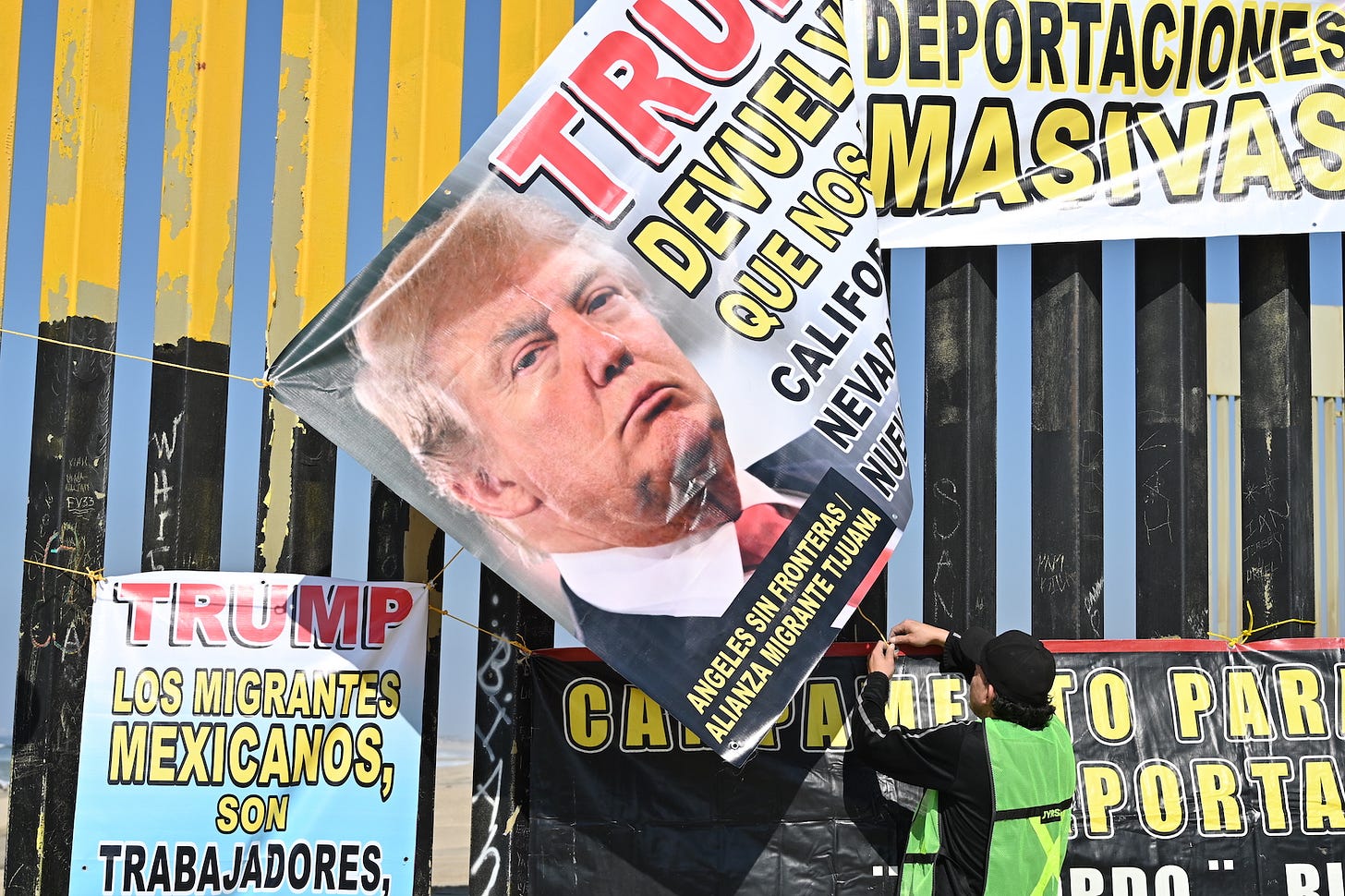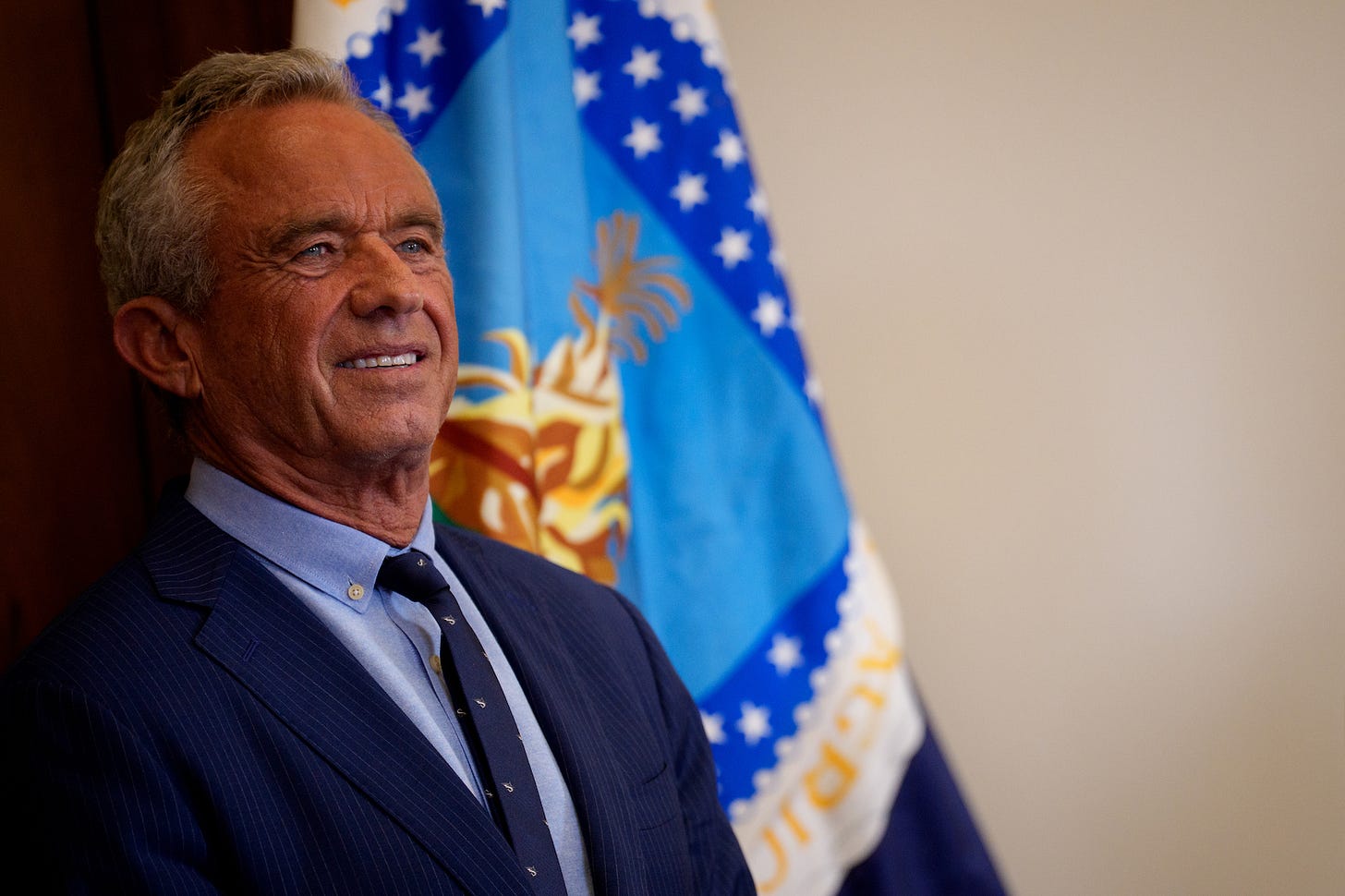Judge blocks asylum ban inside Trump's "invasion" proclamation
Tonight's legal roundup: Federal judges vacate Trump's order suspending the right to asylum and roast the admin's DEI "boogeyman." Plus, Kilmar Abrego alleges torture

Editor’s note:
Paramount’s capitulation to Trump in a $16 million settlement makes one thing clear: Fearless, independent media is more important than ever.
Help sustain our mission, as we research possible bribery litigation over the deal.
Donald Trump’s attempt to ban people crossing the U.S.-Mexico border from seeking asylum has been blocked by a federal judge, who voided broad portions of his Day One executive order characterizing illegal immigration as an “invasion.”
In his ruling on Wednesday, U.S. District Judge Randolph Moss found that the Trump administration cited “nothing” in the Immigration and Nationality Act or the Constitution to give him that power.
“Although the court need not reach the issue, it is telling that defendants have offered no support whatsoever for the dubious proposition that the Framers understood or used the word ‘invasion’ to include illegal immigration,” Moss wrote in a footnote of his 128-page order.
Possible Action Item: Volunteer
Humanitarian groups like HIAS offer opportunities to protect refugees and asylum-seekers.
Thirteen people and three nonprofit organizations sued the Trump administration in February, representing asylum seekers fleeing persecution from Afghanistan, Ecuador, Cuba, Egypt, Brazil, Turkey, and Peru. The individual plaintiffs included people who reported being raped, assaulted, or prosecuted on false charges for their religion, sexual orientation, or opposition to the ruling government.
Less than nine months ago, the Justice Department itself found that neither of the immigration statutes that Trump cited — § 1182(f) nor § 1185(a) — granted the president unilateral authority to limit the right to asylum.
Judge Moss said that the Justice Department had it correct back then.
“Here, nothing in the [Immigration and Naturalization Act] or the Constitution grants the President or his delegees the sweeping authority asserted in the Proclamation and implementing guidance,” he wrote. “An appeal to necessity cannot fill that void.”
Moss found that the Supreme Court’s recent order scaling back nationwide injunctions does not apply in this case because he found the administration’s actions unlawful under the Administrative Procedure Act.
Under the statute, unlawful actions must be “‘set aside’—that is, cancelled, annulled, or revoked,” he noted.
In a separate lawsuit in Arizona, an Iranian woman said that Trump’s “invasion” proclamation stood in the way of her obtaining asylum to shield herself from anti-Christian persecution from the theocratic regime in Tehran. A federal judge in the Grand Canyon state granted her the opportunity to apply for asylum.
Trump health officials can’t define DEI
In a blistering ruling on Wednesday, a federal judge in Boston explained why he blocked Robert F. Kennedy, Jr. and the health agency he leads from revoking grants deemed to have any connection to “DEI” or “gender ideology.”
Health officials couldn’t define what those phrases meant at trial.
“The Public Officials simply have no definition of DEI,” U.S. District Judge William Young wrote in his findings of fact. “How, then, can the Public Officials act on ‘DEI’ if there is no operative definition of ‘DEI’? The answer is plain: they cannot, at least within the confines of the [Administrative Procedure Act].”
Calling Trump’s executive orders “rudderless,” Young found that health officials set up DEI as “some sort of boogeyman.”
In June, Judge Young ordered the National Institutes of Health to restore hundreds of grants that were terminated in the Trump administration’s anti-diversity crusade, calling it the worst case of government racial discrimination he had seen in his four-decade career.
“Without a definition of DEI, they embarked on a fool’s errand resulting in arbitrary and capricious action,” Young wrote.
NIH acting director Matthew Memoli argued that research on gender identity is “often unscientific,” claiming that “ such studies ignore, rather than seriously examine, biological realities.”
But Judge Young found Memoli produced “not a shred of evidence” backing up that assertion.
“Ironically, these kinds of phrases would never survive peer review,” Young wrote.
In short, the judge said: “The public officials have decided that they are going to ‘eradicate’ something that they cannot define.”
Young rejected health officials’ argument that they were just following Trump’s orders.
“The public officials in their haste to appease the executive, simply moved too fast and broke things, including the law,” he wrote.
Read Judge Young’s full findings of fact and rulings of law here.
To keep receiving these legal roundups, consider becoming a free or paid subscriber.
Kilmar Abrego Garcia alleges brutal torture in El Salvador
Kilmar Abrego Garcia’s attorneys asked a federal judge on Wednesday for permission to amend his lawsuit to include his “first-hand account of torture and mistreatment” in an El Salvador prison.
The amended lawsuit provides a grisly account of Abrego’s first days in CECOT, which a federal judge called one of the most dangerous prison in the Western Hemisphere:
“Upon arrival at CECOT, the detainees were greeted by a prison official who stated, ‘Welcome to CECOT. Whoever enters here doesn’t leave.’ Plaintiff Abrego Garcia was then forced to strip, issued prison clothing, and subjected to physical abuse including being kicked in the legs with boots and struck on his head and arms to make him change clothes faster. His head was shaved with a zero razor, and he was frog-marched to cell 15, being struck with wooden batons along the way. By the following day, Plaintiff Abrego Garcia had visible bruises and lumps all over his body.
In Cell 15, Plaintiff Abrego Garcia and 20 other Salvadorans were forced to kneel from approximately 9:00 PM to 6:00 AM, with guards striking anyone who fell from exhaustion. During this time, Plaintiff Abrego Garcia was denied bathroom access and soiled himself. The detainees were confined to metal bunks with no mattresses in an overcrowded cell with no windows, bright lights that remained on 24 hours a day, and minimal access to sanitation.”
In March, the Trump administration spirited Abrego to CECOT, even though a court prohibited his deportation to El Salvador. The prison intentionally mixes rival gangs together, and the Trump administration claimed — without evidence — that Abrego belonged to MS-13 before sending him to be locked up with that gang’s archenemy, Barrio 18.
But El Salvador prison officials recognized that Abrego wasn’t a gang member, according to the amended lawsuit.
“As reflected by his segregation, the Salvadoran authorities recognized that Plaintiff Abrego Garcia was not affiliated with any gang and, at around this time, prison officials explicitly acknowledged that Plaintiff Abrego Garcia’s tattoos were not gang-related, telling him ‘your tattoos are fine.’
While at CECOT, prison officials repeatedly told Plaintiff Abrego Garcia that they would transfer him to the cells containing gang members who, they assured him, would ‘tear’ him apart.
Indeed, Plaintiff Abrego Garcia repeatedly observed prisoners in nearby cells who he understood to be gang members violently harm each other with no intervention from guards or personnel. Screams from nearby cells would similarly ring out throughout the night without any response from prison guards on personnel.
During his first two weeks at CECOT, Plaintiff Abrego Garcia suffered a significant deterioration in his physical condition and lost approximately 31 pounds (dropping from approximately 215 pounds to 184 pounds).”
Since his indictment was unsealed in June, Abrego won a ruling that he should be released from pre-trial detention pending trial after prosecutors failed to show that he was a flight risk or danger to the community.
The Trump administration claims that Abrego participated in a conspiracy to smuggle immigrants into the United States, but a judge found that their evidence largely hinges on “unreliable” testimony by two convicted felons who are now cooperating with the government.
Abrego’s attorneys also want to show the judge new details from a whistle-blower complaint by ex-Justice Department attorney Erez Reuveni, who was fired after admitting that the government whisked Abrego out of the country in “error.”
“These revelations provide evidence of deliberate misconduct that was unavailable when the original complaint was filed and directly support plaintiffs’ claims,” Abrego’s lawyers wrote.
U.S. District Judge Paula Xinis scheduled a hearing on Mon., July 7, in order to determine whether she can order the government to let Abrego await his criminal trial in Maryland, where his wife and three children live.
If successful, Abrego could be released to home detention as soon as July 16.
Read the amended lawsuit here.
Also on our radar
Press freedom groups uniformly denounced Paramount’s $16 million deal with Trump, resolving a lawsuit that became a sticking point in the company’s attempted merger with Skydance. Shareholders are now looking into whether Paramount’s board “breached their duty of oversight by facilitating bribery and illegal activity.”
What to know:
Trump claimed, ludicrously, that “60 Minutes” engaged in election interference through industry standard editing of an interview with Kamala Harris, allegations derided by many legal experts as “frivolous.”
The settlement was announced right before the onset of discovery in the case.
The payout will fund Trump’s presidential library.
Here are what press freedom advocates are saying:
The Knight First Amendment Institute’s Jameel Jaffer: “Paramount should have fought this extortionate lawsuit in court, and it would have prevailed. Now Trump’s presidential library will be a permanent monument to Paramount’s surrender, a continual reminder of its failure to defend freedoms that are essential to our democracy.”
Pentagon Papers lawyer Floyd Abrams told the Freedom of the Press Foundation that the deal marked “an ominous blow to press freedom in our nation.”
A federal jury acquitted Sean Combs today of the most serious counts against him: racketeering and sex trafficking, but it convicted him of two Mann Act charges, which were serious enough to leave him detained pending his sentencing.
Tune in to the U.K.’s LBC at 9:30 p.m. Eastern Time for my analysis of the verdict.




